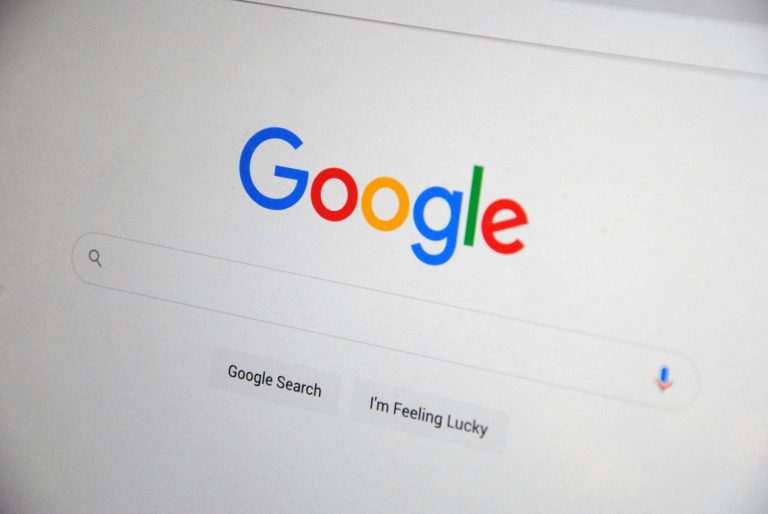Feeling confused by duplicate content?
If you’re struggling to understand why duplicate content is an issue for websites, how it occurs, and whether it can have a detrimental impact on your SEO (Search Engine Optimisation) efforts, the expert team at Aqueous Digital can help.
Our award-winning team has years of invaluable experience conducting website audits that can identify duplicate content and other potential areas of improvement.
To help you understand duplicate content and its potential impact on your domain, we explain all below.
From how to detect and delete duplicate content for SEO purposes to how Google identifies duplicate content, we answer some of the most frequently-asked questions surrounding this topic.
What is duplicate content?
As the name suggests, duplicate content refers to either closely similar or exact copies of content that has either been published on different pages (URLs) of the same website, or published on two or more different websites.
A common term used by those in the SEO or digital marketing sector, duplicate content can occur for a variety of reasons – some purposeful and others accidental. In some cases, websites may intentionally copy the content from another domain, changing only the product or brand name.
Duplicate content is also common on online marketplaces as many sellers tend to directly copy the manufacturer’s description of the product. While this ensures that the description of the product is accurate, it means duplicate content is created and quickly spread across multiple websites.
While this type of duplicate content is non-malicious (similar to content on your own site that can be unintentionally duplicated following technical issues), malicious duplicate content that intentionally violates copyright laws also exists.
Malicious duplicate content therefore refers to content that has been purposely stolen from your website and used elsewhere.
Due to the open nature of the internet, lifting content from one place and copying it to another is easy and many domains will exploit this for their own benefit.
What is a duplicate content issue in SEO?
Now we’ve explained exactly what duplicate content is, it’s important to explain why SEO and duplicate content aren’t a good mix.
When similar or exact content appears in various locations across the web or on one domain, search engines like Google can struggle to choose which URL they should show in the SERPs (Search Engine Result Pages).
As a result, duplicate content can have a significant negative impact on the SEO efforts of a website.
From showing the wrong version of pages in the SERPs to pages not being indexed, or performing poorly in terms of key website metrics, duplicate content can be detrimental to the ranking of certain pages of your site.
When considering whether the degree of duplicate content on your website will create an SEO issue, it’s important to remember that Google always recommends creating content for online users, not search engines.
As a result, if your duplicate content isn’t useful for your users, it’s unlikely to be valued by search engines like Google.
Is duplicate content still bad for SEO?
Put simply, yes, duplicate content is generally bad for the SEO of websites – either in terms of performance or penalties.
Not only can duplicate content hurt your rankings, but if you’re found to be intentionally copyrighting content from elsewhere Google may penalise you by delisting the offending page or even the whole website.
This means your URLs will be removed from the search engine’s index and your content won’t appear in the SERPs. In turn, this can be detrimental to your organic traffic and incredibly damaging to your SEO efforts overall. The best way to avoid these unwanted penalties is to create your own, unique content while ensuring you don’t copy content word-for-word.
Similarly, online users can also find duplicate content incredibly frustrating because it can make finding the page they’re looking for even more difficult.
Swiftly rectifying any duplicate content issues is therefore crucial for both search engines and improving the experience of online users.
Is having duplicate page titles good for SEO?
No, duplicate page titles, similar to duplicate content in general, are not considered good for SEO.
Not to mention, using the same or very similar page titles on either the same page or across multiple pages on the same domain also means you may be jeopardising the user experience.
In many cases, however, duplicate page titles are the result of either human error or a script error and can therefore be easily rectified.
Can I have two websites with the same content?
While there’s no technical reason that you can’t publish the same content on two different websites or domains, having two websites with the same content or duplicate content, from an SEO perspective, isn’t recommended.
In some cases, duplicate content across two websites can lead to either a significant penalty from Google or complete deindexing.
While this is rare, this penalty is designed to discourage the intentional copying of content from one website to another.
How much duplicate content is acceptable?
Unfortunately, there’s no exact percentage or number of words or pages of duplicate content that is considered acceptable.
In fact, some estimates suggest that 25 to 30 per cent of all the web’s content is actually duplicate content, but this doesn’t mean that it’s good practice to ignore duplicate content.
Instead, it’s considered best practice by SEO professionals to try to minimise duplicate content across your domain wherever possible. Naturally, company logos and taglines will often feature on multiple URLs across a website, but large paragraphs of text shouldn’t be appearing on various pages within the same domain.
While your site may not suffer from direct search engine penalties, it’s likely that your SERP rankings will be negatively impacted if you fail to combat duplicate content on your website – especially if this duplicate content is being used to intentionally manipulate search results.
In general, Google values unique and useful content that informs online users and provides them with a better answer to their search query than other domains. The creation of unique content and subsequent avoidance of duplicate content should therefore be prioritised by all website owners.
How does Google identify what content is duplicated?
When Google chooses which results to deliver to an online user, they want to provide varied, but relevant results. Showing the same content from different URLs, however, provides no additional value for the user, so these search engines need a way of identifying and filtering out URLs that have the same or very similar content.
To help detect duplicate content online, Google adopts a predictive approach that involves analysing URL patterns. By assessing the similarity of URLs, Google can predict which pages are likely to contain duplicate content.
Once duplicate content has been detected, the search engine will group all the URLs into one cluster and then select the URL it believes to be the ‘best’ for the relevant search query. This helps to prevent multiple URLs with the same content from appearing in the SERPs, ensuring a more varied range of search results.
How do you handle duplicate content in SEO?
The way in which you can handle duplicate content SEO problems depends heavily on the cause of the issue.
Duplicate content owing to technical issues like URL variations and the creation of generic product pages can often be easily fixed internally as they’re localised to your domain.
Fixing duplicate content that has been stolen from your site and added to another domain, on the other hand, will require reaching out for help from external sources.
To help you determine the best way to resolve a wide range of SEO duplicate content issues, we explain how to fix duplicate content both within your own domain and outside of it.
Handling duplicate content on your domain
Some of the most common causes of duplicate content include having separate site versions (such as sites that use both http:// and https:// versions), complex taxonomies, and even printer-friendly versions of the same pages.
Some of the most common ways of overcoming these duplicate content issues is to either supress the duplicate content, redirect from the duplicate content to the primary content, disallow the indexation of duplicate content, or use canonical tags.
Ultimately, however, there are many different causes of duplicate content, each one requiring a different solution.
Handling duplicate content that has been stolen
While rectifying duplicate content on your own website is relatively simple, it can be harder to fix content that has been stolen from your site. The first step to fixing this issue is to identify exactly who is using your content by simply carrying out a Google search of the copy you believe has been stolen.
By making this search, Google will identify the various sites that are using the same copy in the SERPs. From here, you can make a list of sites that are using your copy and take various actions.
First and foremost, you should contact the website owner directly with your complaints.
If you don’t get a response from the website owner or they refuse to remove your copy from their site, you can send a DCMA (Digital Millennium Copyright Act) takedown notice to the website’s host.
Naturally, however, this will involve some research to determine which provider is responsible for hosting the website that has stolen your copy.
If you’re still failing to get a response from either the website owner or the hosting service provider, you can contact Google.
You can ask Google to delist URLs with copyright-infringing content from the SERPs by filing a DMCA takedown notice.
Upon receiving a valid takedown notice, Google’s policy is to respond to all ‘clear and specific notices of alleged copyright infringement’.
They will carefully review the takedown notice and delist the URL from the SERPs, so long as they find the notice to be complete and there are no other issues.
Explore Aqueous Digital’s SEO and content services
At our award-winning digital marketing agency, we’ve helped countless clients across the UK to improve both their content and SEO efforts. Our experienced team of SEO specialists can help you to identify, and either remove or rectify duplicate content that could be having a negative impact on your website.
Regardless of the type of industry you operate within or the size of your business, our professional SEO guidance and strategies can work wonders when it comes to boosting your organic traffic, increasing the number of enquiries you receive, and generating more revenue.
Alongside specialising in content strategies, paid SEO, and organic SEO, we can also provide reputation management services for high-net-worth individuals. If you’re interested in exploring any of these services, we can help.
If you need an agency that can be your guiding hand to great SEO in Sheffield, Liverpool, Manchester, and all across the UK, contact Aqueous Digital. To get in touch with our north west team you can either give us a call on 0800 285 1424, or alternatively email us at hello@aqueous-digital.co.uk.
No matter how you decide to contact our team, you can rest assured we’ll be in touch soon to learn more about your specific content and SEO requirements, conduct a free website health check, and get your no-obligation consultation scheduled with an expert member of our sales team.





